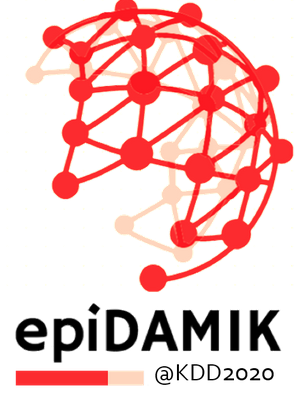
epiDAMIK 4.0, 'Epi Meets Data' Intl.


Description
The devastating impact of the currently unfolding global COVID19 pandemic and those of the Zika, SARS, MERS, and Ebola outbreaks over the past decade has sharply illustrated our enormous vulnerability to emerging infectious diseases. We are living in an era during which human activity is the dominant influence on climate and the environment. With escalating globalization, urbanization, and ecological pressures, the threat of a global pandemic has become more pronounced. There is an urgent need to develop sound theoretical principles and transformative computational approaches that will allow us to address the escalating threat of current and future pandemics. Data mining and Knowledge discovery have an important role to play in this regard. Different aspects of infectious disease modeling, analysis and control have traditionally been studied within the confines of individual disciplines, such as mathematical epidemiology and public health, and data mining and machine learning. Coupled with increasing data generation across multiple domains (like electronic medical records and social media), there is a clear need for analyzing them to inform public health policies and outcomes. Recent advances in disease surveillance and forecasting, and initiatives such as the CDC Flu Challenge, have brought these disciplines closer––public health practitioners seek to use novel datasets and techniques whereas researchers from data mining and machine learning develop novel tools for solving many fundamental problems in the public health policy planning process. We believe the next stage of advances will result from closer collaborations between these two communities---the main objective of epiDAMIK.
Collaborators
Bijaya Adhikari (UIowa), Rose Yu (UCSD), Amulya Yadav (PennState), Sen Pei (CU), Sarah Kefayati (IBM), Ajitesh Srivastava (USC), Anil Vullikanti (UVA), Arvind Ramanathan (ANL).




